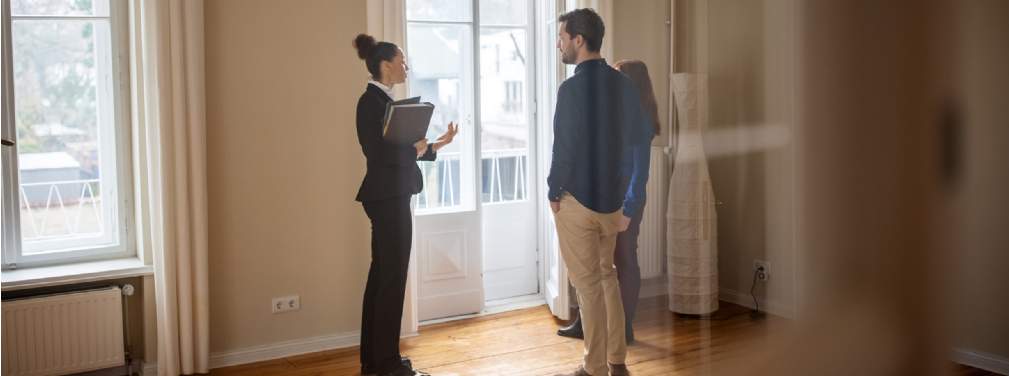When it comes to letting your residential property out, there are lots of factors to take into consideration. If you’ve never done it before it can be a daunting task but our guide to letting a residential property offers new landlords all the advice they need and lists all the aspects they need to think about.
Start by checking your mortgage
You are legally required to inform your lender that you intend to let your property out. Some mortgages contain clauses which won’t allow you to let on your existing mortgage, while others require notification to grant ‘consent to let’. In some instances you may incur a fee or your lender will make an adjustment to your current interest rate. Your mortgage may also have terms specifying what sort of tenancies they will permit.
Think about how long you want to let your property for?
Keep in mind that most corporate tenants want to rent for a minimum of two to three years, with flexibility to end the tenancy sooner if they need to. If you are only letting your home out for six to 12 months, you may want to price your property more competitively and avoid lengthy void periods. But it’s also important to consider your mortgage terms, too: some lenders consent for 12 months at a time.
Work out your tax
If you plan to rent out your property, you are obliged to inform HM Revenue and Customs and may be liable to pay tax via a self assessment tax return. It could also impact how much Capital Gains Tax you have to pay when you sell the property, so it’s important to work out how much tax you might be eligible for as this may determine whether letting the property out makes financial sense. Savills can put you in touch with an accountant who will give you up to 30 minutes’ free telephone advice on any letting-related financial queries.
What work needs to be done?
Look at your property as if you were seeing it for the first time. At the very minimum, rooms are likely to need to be decluttered and repainted. To achieve a better rent, more works may be required – your agent can advise you.
Before potential tenants view the property you should ensure the following work has been done:
- Exterior is in good decoratve order, garden is clear and garages are accessible
- Clean the property professionally, inside and out
- All appliances are serviced and in good working order with manuals available for tenants to view
- There are enough keys/fobs for the tenants
- Phone lines and TV aerials are working
- Your mail, or the previous tenant's mail, is being re-directed
Take out rental insurance to protect your property
Your tenant will be advised to get contents insurance for their possessions, but you’ll need specialised rental insurance for the building and any contents you leave.
Even if your property is let ‘unfurnished’ make sure you are covered for your possessions such as carpets, flooring, curtains and white goods. You should tell your insurer of any high value items as these might need a greater level of cover. If you don’t get the right policy for letting; such as cover for accidental damage to the property or cover for accidents or injury to the tenant or any visitors to the property any claim may be invalid.
You may (as long as your tenant passes references) also be eligible for landlord legal or rent and legal protection insurance. Even the most reliable tenants can experience financial difficulties and taking out such a policy can help as a safeguard to protect your rental income.
You can contact the insurance provider we work with, The Lettings Hub, on 0345 450 9903 or email them at savills.insurance@lettingshub.co.uk or visit their website to get a no obligation online buildings and contents insurance quote or rent and legal insurance quote.
When you quote ‘Savills’ they will apply a reduced rate. If you select an insurance product through The Lettings Hub we may be paid commission.
Safety tests
It’s a legal requirement to let a safe house and the only way you can do this is by having the right checks completed and provide evidence of these checks to the tenants.
Your property will therefore need to have a number of health and safety tests to make sure it is safe to let out. Amongst other things these checks include, a gas safety test and annual boiler service, a fixed wiring electrical safety test, a portable appliance test and annual services should be completed for any oil or solid fuel appliances. You must fit smoke alarms on every floor of your property and a working carbon monoxide detector anywhere there is a solid fuel appliance or working open fire. To see your full health and safety responsibilities please read our landlord guide.
Ensure you've fulfilled all your legal obligations
The following legal obligations must be fulfilled before you let out your property:
Energy Performance Certificate (EPC)
New Minimum Energy Efficiency Standards (MEES) legislation comes into force on 1st April 2020 which affects all properties whether listed or not. It is a requirement for residential properties to have a minimum energy performance rating of E, if it is any lowe than this, an agency cannot market your property.
Learn more in our landlord guide
Electrical Safety Standards
It is the responsibility of the landlord to have the electrics inspected and tested every five years by a qualified person. Once this is done a copy of the Electrical Installation Condition Report (EICR) must be provided to the tenant. If the inspection is deemed unsatisfactory, you have 28 days to resolve an issues.
Flood and Water Management Act 2010 (Section 45)
You must provide the tenant's contact details t the relevant water company at the end of the tenancy. If you don't, they will become liable, along with the landlord, for unpaid water charges.
Gas safety regulations 1998
A Gas Safe registered engineer must check the gas appliances in the property and a Gas Safety Certificate (GSC) must be provided and renewed annually.
How to Rent Guide
As of October 2015, a copy of the government publication must be provided to the tenant at the start of the tenancy.
Smoke alarms and Carbon Monoxide alarms
As of October 2015, all rented properties are required to have smoke detectors and carbon monoxide alarms fitted.
Take an independent inventory
It’s vital to have an independent inventory carried out – this is especially important to help avoid dispute when the tenancy comes to an end.
A tenancy agreement requires the tenant returns the property and contents in the same condition as they took the property and so the inventory is vital in ensuring this can be ascertained. In most cases, it is the landlord's obligation to pay for the inventory check-in report at the start of the tenancy, while the tenant pays for the check-out report.
Be prepared to act quickly
The lettings industry moves at a fast pace, so have everything to hand at the outset to help the process run as smoothly as possible.
Choose an ARLA Propertymark protected agent
ARLA Propertymark is the letting industry’s regulatory body. Members must comply with a code of practice and byelaws for professional standards and best practices. For ARLA Propertymark members it’s The Property Ombudsman Code (TPO Code of Practice).
Client money protection
There is no legal obligation for a lettings agent to be licensed. You should make sure you rent through an agent with client money protection in order to try and protect any deposits or rents being held by the agent.
Read about the risks of letting or renting through an agent without a client money protection scheme




.jpg)





